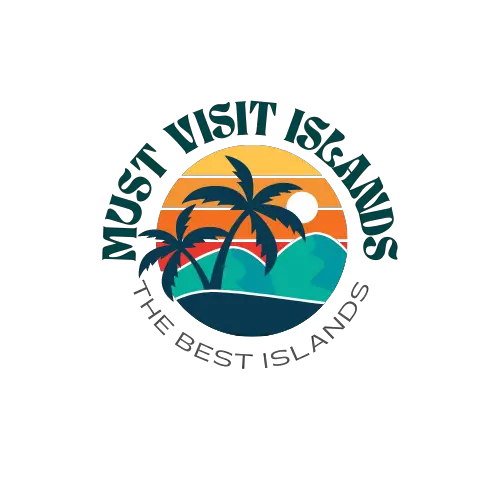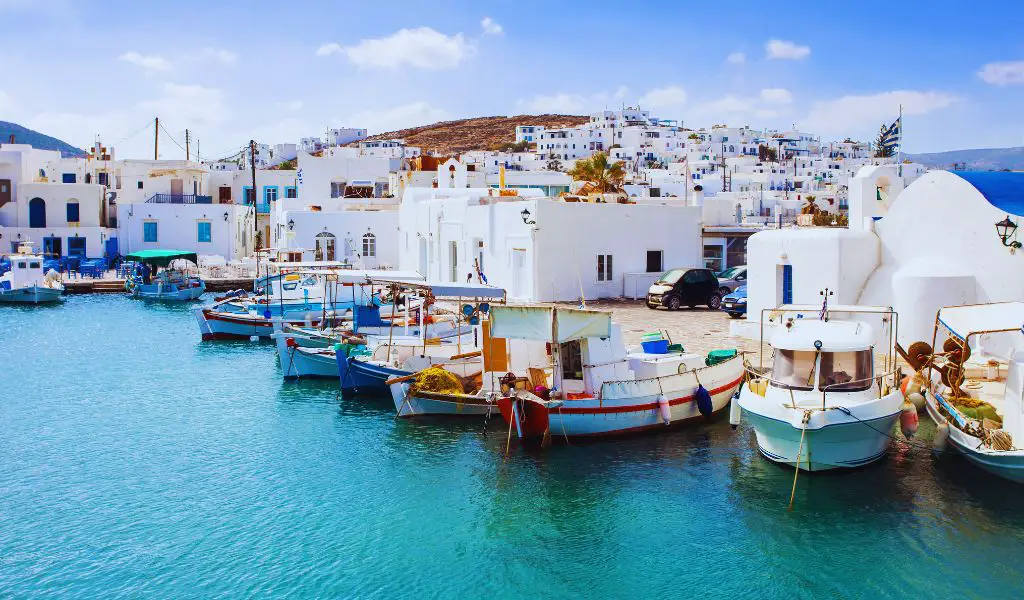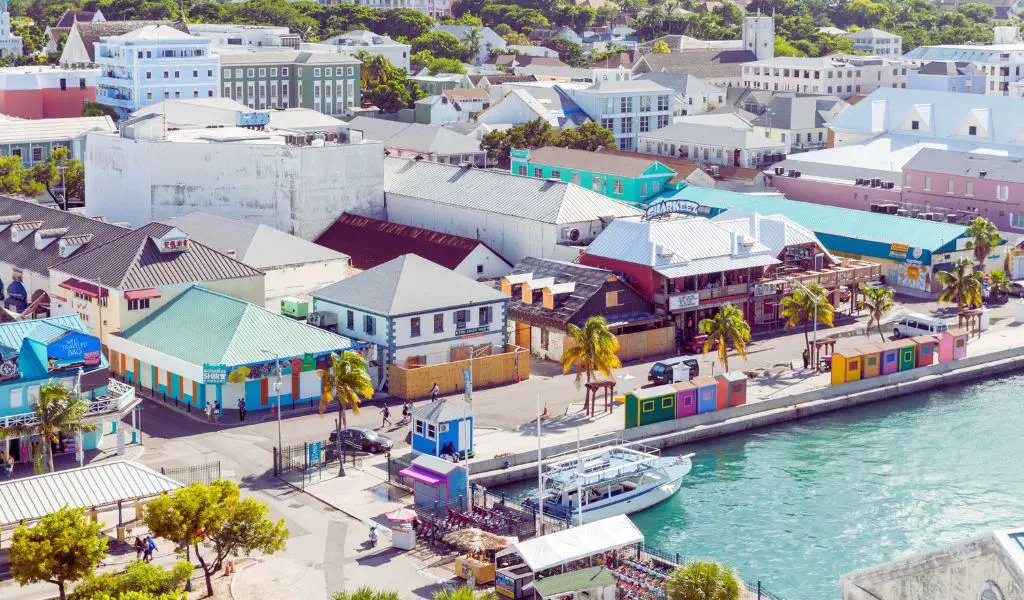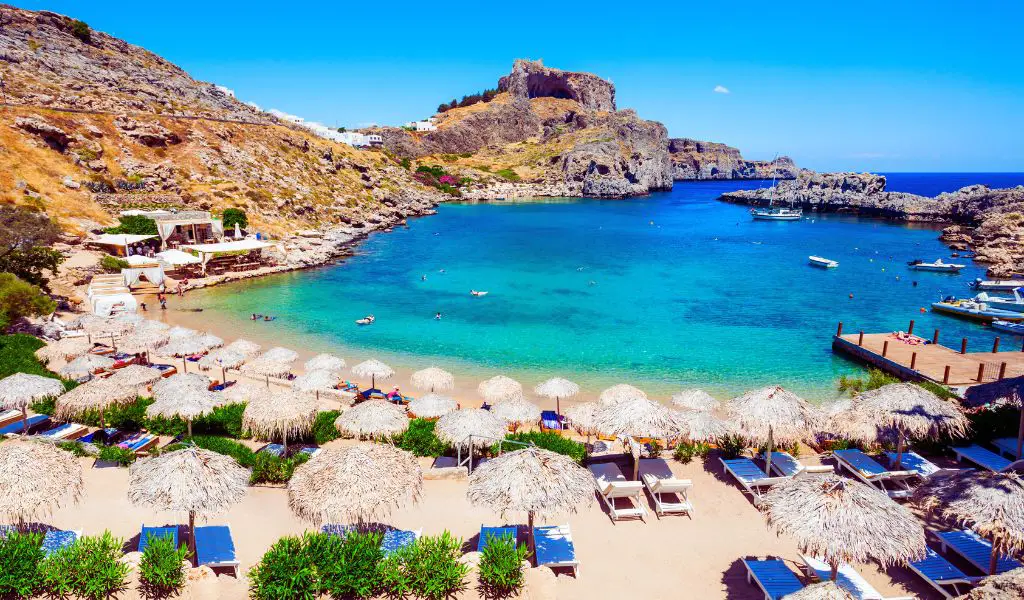Paros, a sparkling gem in the Aegean Sea, stands proud as one of the most enchanting destinations in the Cyclades island group of Greece. The island is famed for its distinct geographical features and a rich history that continues to permeate the present.
Geography
Paros is characterized by a picturesque landscape that’s a blend of verdant valleys and rugged mountains, capped off with golden beaches that wrap around the island’s coastline.
The highest point of the island is the mountain of Profitis Ilias, offering stunning panoramic views to those who venture its slopes.
Besides these, the natural caves like Agios Ioannis, sculpted by centuries of erosion, serve as a testament to the island’s geographical diversity.
History
The history of Paros can be traced back to the Neolithic period, with many archaeological sites providing a peek into the island’s past.
One of the most notable historical landmarks is the Panagia Ekatontapiliani, also known as the Church of 100 Doors.
This Byzantine church complex is one of the oldest in Greece and holds significant religious importance.
Another testament to Paros’ historic past is the archaeological site of Delion, a sanctuary dedicated to the god Apollo, which offers glimpses of the island’s ancient roots.

Attractions
The local attractions in Paros extend beyond its natural beauty and historical sites.
The island is renowned for its vibrant traditional villages such as Naoussa and Lefkes, where visitors can experience authentic Greek culture.
The cobblestone streets lined with white-washed houses and blue-domed churches epitomize the classic Cycladic architecture.
Activities
Popular activities in Paros range from water sports to wine tasting.
The island is considered a hotspot for windsurfing and kite surfing, thanks to its favorable wind conditions.
On the other hand, the Moraitis Winery offers wine enthusiasts an opportunity to sample some of the finest Greek wines, produced using local grape varieties.
Population
Paros is home to approximately 13,000 residents.
Most inhabitants live in Parikia, the island’s main town, but traditional villages like Naoussa and Lefkes also host a significant number of locals.
When to Go
The best time to visit Paros is between late April and early October, when the weather is warm and dry.
July and August are the busiest months with plenty of festivals and events taking place.
How to Get There
Paros is accessible by both air and sea. Paros National Airport connects the island to Athens and Thessaloniki.
Alternatively, ferries to Paros depart regularly from Piraeus and Rafina ports in Athens.
Highlights
Some of the top highlights of Paros include the Church of 100 Doors, the archaeological site of Delion, the traditional village of Naoussa, the Moraitis Winery, and the Kolymbithres beach with its unique rock formations.
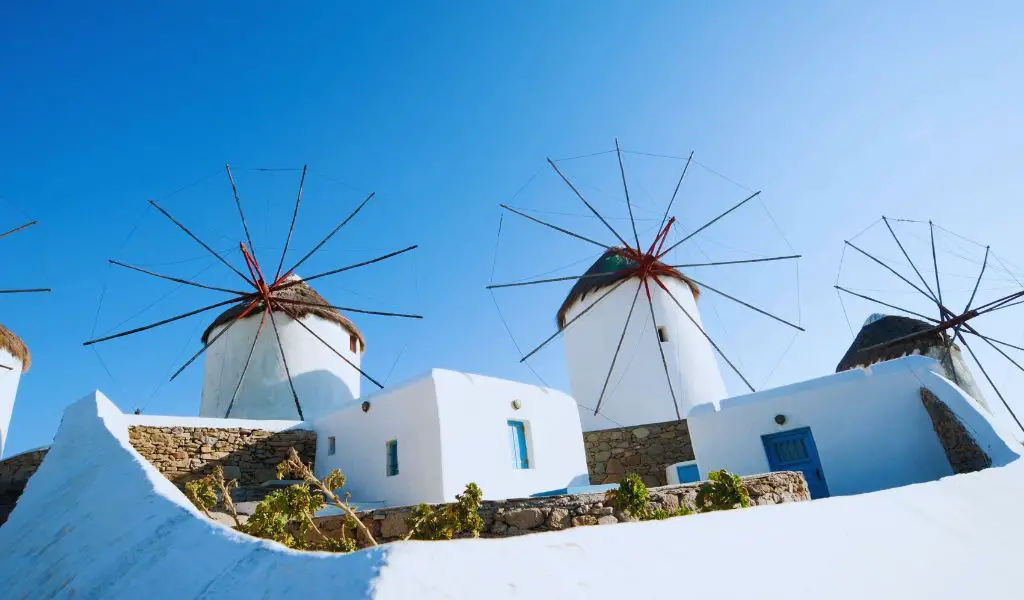
What You Should Know
Despite its popularity, Paros maintains its authenticity and offers a peaceful getaway.
While English is commonly spoken, learning a few Greek phrases can enrich your experience.
Moreover, Paros has an ATM network and card payments are widely accepted, but it’s always useful to have some cash for smaller vendors.
FAQs
Is Paros family-friendly?
Absolutely! Paros offers a wide range of activities suitable for all ages, making it an ideal destination for families.
What local dishes should I try in Paros?
Paros is famous for its local cheese, Parian wine, and fresh seafood. Make sure to try “Gouna,” a sun-dried mackerel specialty of the island.
Are there any local customs I should be aware of?
When visiting churches or monasteries, dressing modestly is appreciated. Also, tipping is customary in restaurants and cafes.
